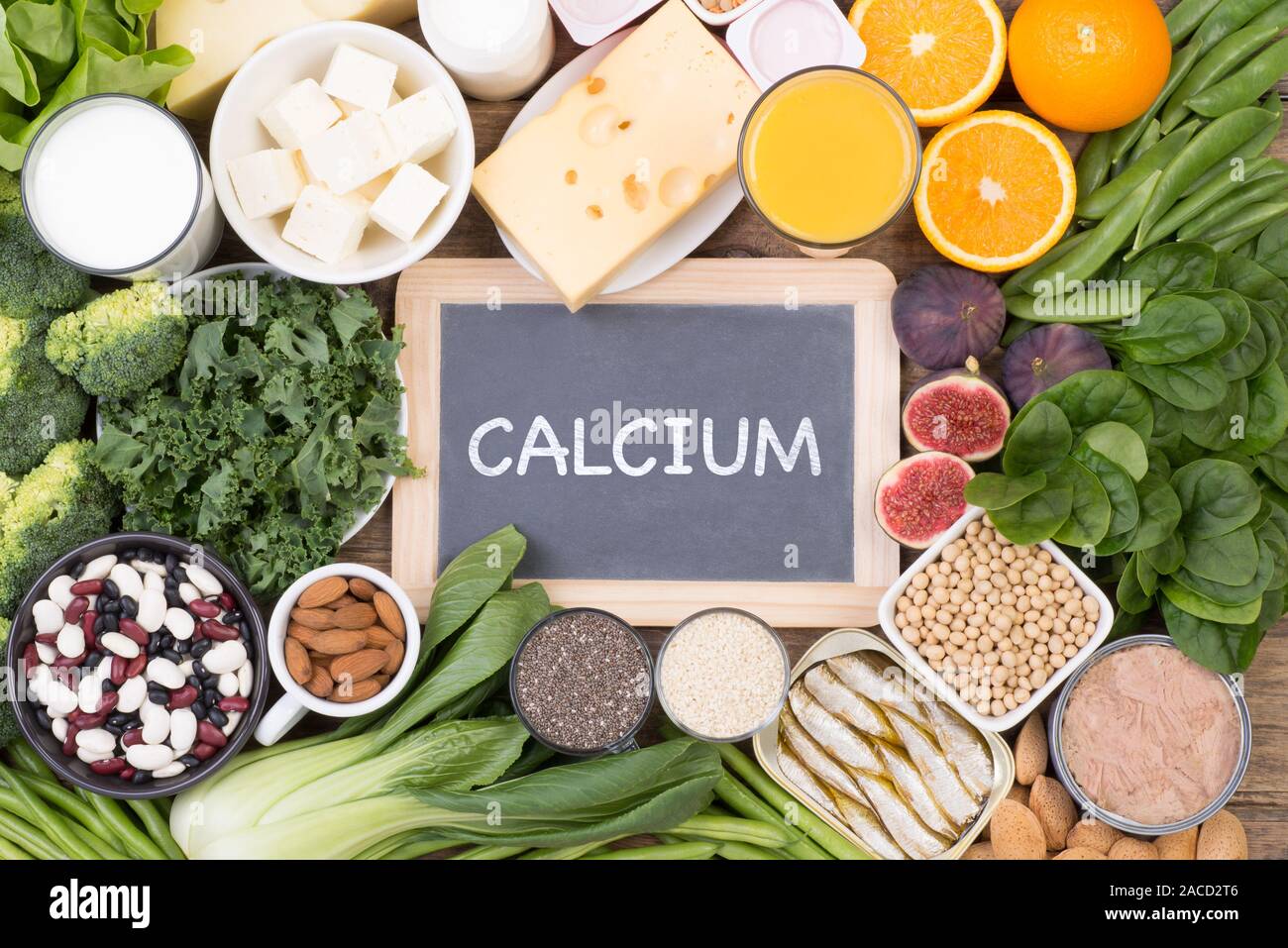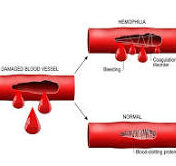
Calcium is one of the principal elements required for the effective functioning of various important body systems. The bones and flesh (muscles) of the human body rely on Ca++ for strength and contraction respectively. In addition, all the metabolic systems concerning the digestion and absorption of carbohydrates, proteins and fat depend on the availability of this mineral either directly or indirectly. Nerve impulse transmission, hormone secretion, blood coagulation, degranulation of secretory vesicles and its role as second messenger system for various hormones are some other functions of Ca++.
Calcium is obtained from a number of dietary products and is absorbed through the duodenum of small intestine. It is actively transported across the enterocyte in response to PTH. Consequently, parathyroid hormone activates vitamin D which aids this absorption process by inducing calbindin (carrier protein of Ca++) synthesis. Normal blood levels of Ca++ are 9-11 mg/dl containing ionized form and calcium phosphate complex. Both forms are diffusible from blood to tissues effectively. Defective absorption, low intake, hormonal changes or use of some drugs may lead to deficiency symptoms as discussed.
Symptoms of calcium deficiency:
1. Bone and muscle weakness:
Do you often hear creaking sounds from your bones and joints while getting up or walking upstairs? Do you experience muscle cramps or stiffness that lasts a very long duration even without exercise or working? Deficiency of this essential nutrient which disturbs the mineral content of bones leading to popping sensations of bones and joints that is often painful. Shortening of metacarpal and metatarsal bones is seen. Also neuromuscular irritability is another consequence of low Ca++ thus causing tetany, muscle aches and spasms. In addition, it may manifest as carpopedal spasm, tingling in hands and feet and laryngospasm which causes the high pitched whistling sound with respiration.

2. Dental issues:
Are you having dental issues such as loss of tooth enamel or deterioration of teeth along with gum disease? Tooth decay is a strong indicator of mineral deficiency particularly calcium and phosphates. Ca++ helps build the tooth enamel that protects the tooth from acidity of the saliva. Therefore, in its absence, enamel is weakened and becomes porous allowing bacterial invasion progressing to decay. Hence, Ca provides the protection barrier to the tooth substance against the toxic agents.

3. Coagulopathy:
Do you bleed excessively even from minor cuts? Does your wound healing is exceptionally slow? Calcium also known as factor IV is an important linker in various enzymatic reactions of blood clotting process. The γ- glutamyl residues of clotting factors are chelated by Ca for activation and effective function. Prothrombin is not converted to thrombin by the chelation process in the absence of calcium. Thus, the fibrin clot formation does not occur and excessive bleeding continues associated with subtle coagulopathy. However, calcium infusion may greatly stimulate clotting process.

4. Arrhythmias:
Cardiac muscles require Ca for excitation contraction coupling. When calcium homeostasis is disturbed, life threatening ventricular arrhythmias may precipitate. As a consequence of hypocalcemia, electrolyte imbalances progress to altered ionic current kinetics of the heart. Thus, electrical rhythm of the heart is modified in the absence of Ca to cause arrhythmic effects such as fluttering or racing feeling in chest, increased heart rate and shortness of breath.
5. Neurological symptoms:
Ca++ serves its messenger role in nerve impulse transmission that involves the neurotransmitter synthesis and release, phosphorylation of specific structures and even long term memory storage etc. Due to hypocalcemia, several neurologic and psychologic symptoms fling up such as confusion, delirium, depression, hallucinations and even seizures. However, all these effects can usually be alleviated by intravenous calcium.

Vulnerable groups to calcium deficiency:
- Malnourished children with prolonged low calcium intake
- Postmenopausal women and amenorrhoeics may be highly susceptible to hypocalcemia and the consequent osteoporosis. In addition, low estrogen levels in these individuals cause rapid thinning of bones.
- People with malabsorption diseases such as Celiac disease or Crohn’s disease
- Use of certain medications like bisphosphonates, corticosteroids, chloroquine etc.
Dietary sources of calcium:
- Dairy products: milk (cow’s milk has high Ca++ content), eggs, cheese, yoghurt.
- Beans, nuts and seeds
- Spinach, broccoli and kale
- Salmon and sardines
Daily requirement of calcium:
For
- Growing children: 1 gm
- Adults: 700 mgs (17.5mmols) / day. Requirement is increased during pregnancy and lactation.
- In senescence (old age above 50), increased amounts of about 1500 mg/day is required to combat the effects of osteoporosis so vitamin D intake is also increased.
Diagnosis of hypocalcemia:
Calcium levels can be measured by the laboratory investigation of serum with ortho-cresol phthalein, a dye which produces violet color with calcium in alkaline medium. Ion selective electrode method of calcium levels in aqueous samples are also useful. A screening test, called Sulkowitch Urine Calcium test is used for estimation of urinary calcium . The reagent used are oxalic acid, ammonium oxalate and acetic acid. Procedure involves adding equal amounts of reagent to urine sample and estimation of the amount of Ca excreted. Results are interpreted as :
No precipitates (PPTs) = Ca level 7.5mg/dl : hypocalcemia.
Fine cloudy PPTs = Normal Ca level 9–11mg/dl : normal
Heavy white PPTs = Ca level as high as 14- 16mg/dl : Hypercalcemia